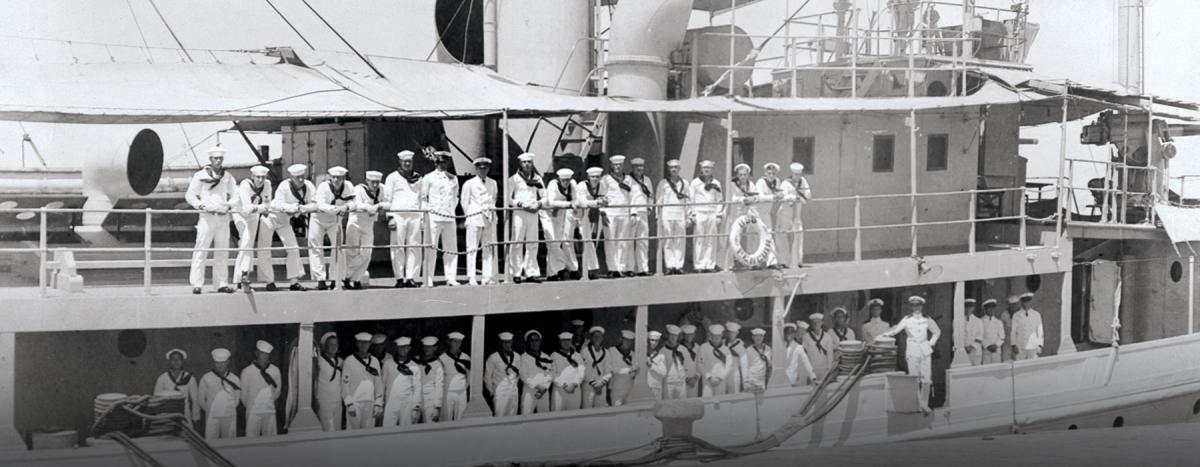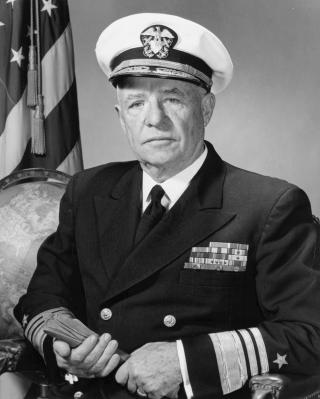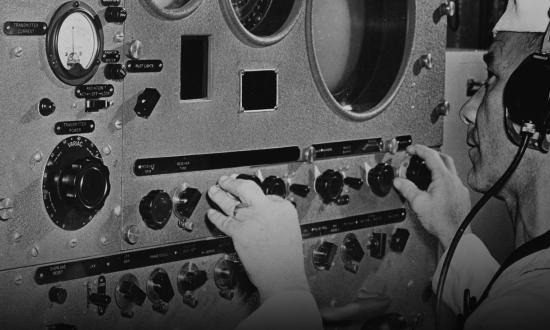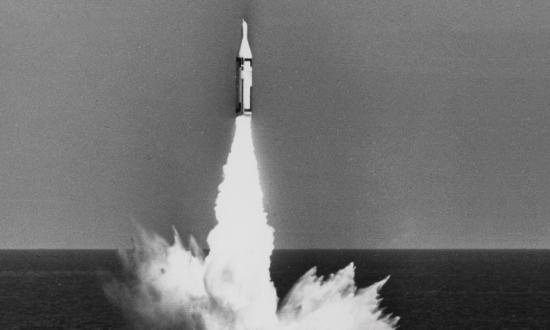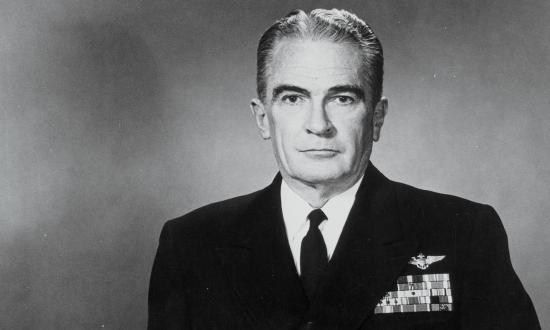Capping an active-duty career that spanned from 1919 to 1952, Vice Admiral Felix Johnson served as Director of Naval Intelligence. He commanded the USS President Adams (APA-19) during the World War II amphibious landings at Bougainville in the Solomon Islands and, in 1945, was commanding officer of the cruiser USS Springfield (CL-66) when she escorted President Franklin D. Roosevelt across the Atlantic to the Yalta Conference. Earlier in his career, in 1923, as he recalls in these edited excerpts from his oral history, he requested and received orders to the Asiatic Station as executive officer and navigator on board the gunboat USS Penguin (AM-33).
The USS Pigeon (AM-47) and the Penguin, former North Sea minelayers, were converted and commissioned in Pearl Harbor. Before we departed Pearl there was some question whether we could make it all the way to Shanghai with the amount of oil we were carrying. My old chief boatswain’s mate, named Smith, with a Swedish accent, suggested rigging a mainsail. We got one cut and hoisted, and it added about a knot of speed—up from eight to nine. We did not stop, all the way to Asiatic Station and the Yangtze Patrol.
The patrol was under the commander of the Asiatic Fleet—flag in the USS Pittsburgh (ACR-4)—who came into Shanghai and spent about three or four weeks there in the spring en route to other Chinese ports. We spent the next two years steaming up and down the Yangtze, protecting missionaries when they had a rough time and looking after American rights. We could only go as far as Ichang, the foot of the gorges, where we began to strike the rapids. We had two little gunboats, the USS Palos (PG-16) and Monocacy (PG-20), which did the run further up from Ichang to Chungking. Some bandits and Chinese were beginning to take cracks at us. We put an armed guard, eight enlisted men and one officer, on each American merchant ship running the 200–300 miles to Chungking. I’ve made the run many times, first time I was ever fired on.
We grounded many times in the river, the channel constantly shifting from side to side. We pulled merchant ships off that had no power, and there were the missionaries, a pretty brave and good group of people. When a Catholic missionary came to China he gave up his country for life, never expected to go back. The Protestant missionaries had a sort of rotation. Then there were the oil companies, sometimes with difficulties with the Chinese. A number of times I had to go ashore with landing parties to guard the Standard Oil compound. The companies brought the oil in in tankers and sold it to the Chinese. Kerosene was used for lamps; oil for the lamps of China, as Pearl Buck wrote.
The British and the French had Yangtze patrols. I remember when the river went down very fast and left the French Boudart de Lagre sitting on top of a rock about 50 feet above the water. Of course, the water came up a week later and they got her off. In the gorges, the floods came down and the river probably rose 100 feet in a night.
This was the time of the Chinese warlords, and we were always afraid that Chiang So Lin, warlord of the north, was going to come down and knock everything off the river. Wo Pei Fu was the other warlord. As long as they were suspicious of each other they did not bother us much. One time, the American Consul got word that a group was going to try to take over the consulate. Our Herman Barker took about 40 men, marched from the Standard Oil dock up to the consulate and spent the night. Just a few shots fired, but the next day Barker had to march backward all the way, a mile and one half to the dock, because Chinese were following. The captain fired off a couple of the ship’s 3-inch guns, just up in the air. We never had anybody killed. The objective of the bandits was plunder.



